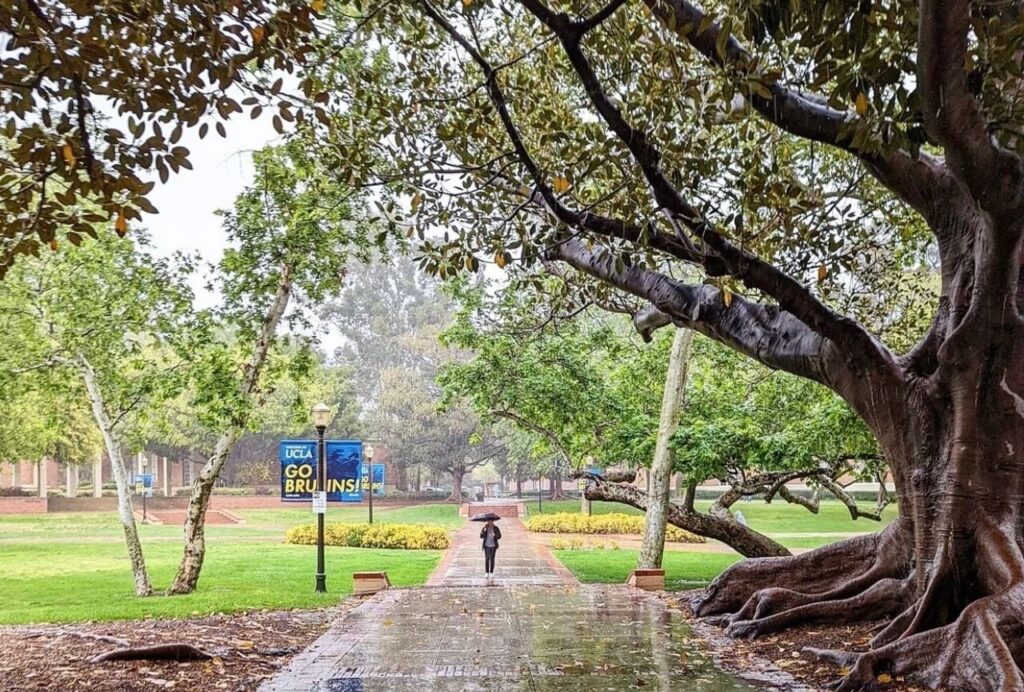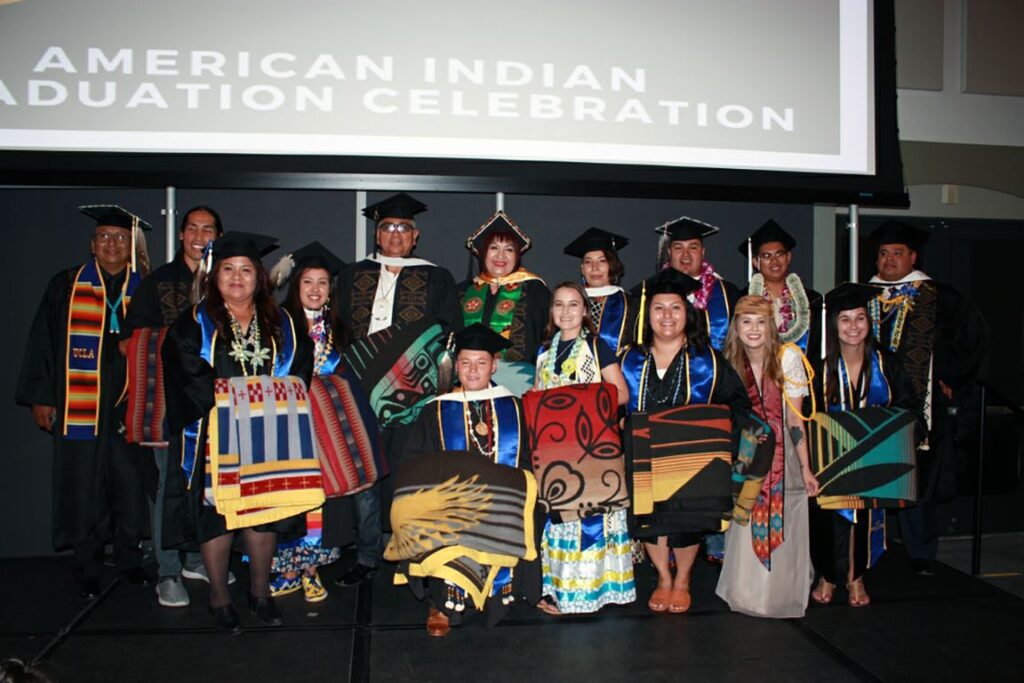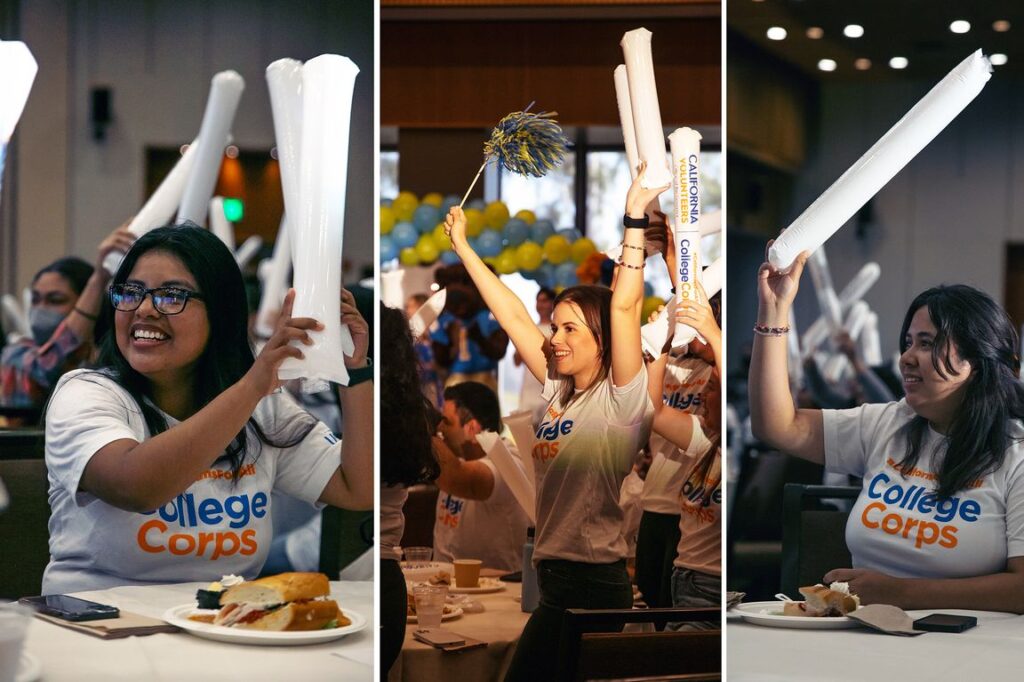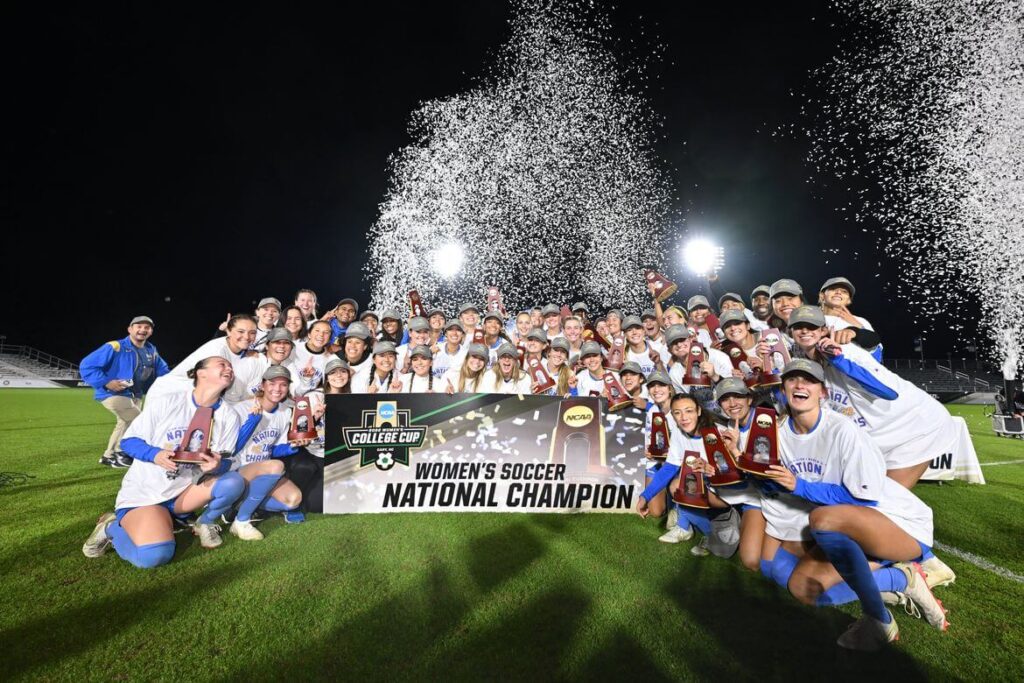
The start of a new year comes with renewed resolve and hope for the possibilities ahead.
My Winter 2023 Update is full of news that encourages us to continue on the path of advocacy, service and perseverance: UCLA has elevated American Indian Studies from a program to a full department, our students are taking part in a new California public service initiative, and UCLA women’s soccer recently brought home our 120th NCAA title.
In this issue
- American Indian Studies Now a Full Academic Department
- College Corps: Making College More Affordable and Service-Oriented
- Women’s Soccer Wins Bruins’ 120th NCAA Title
American Indian Studies Now a Full Academic Department

After decades as a highly regarded interdepartmental program at UCLA, American Indian Studies has been elevated to a full academic department. This achievement is a tribute to the leadership and advocacy of Native American faculty, staff and students over many years. While American Indian Studies will continue its tradition of collaboration with other disciplines and departments, the new department will be able to appoint its own faculty, hire its own staff and exercise greater institutional self-determination.
The American Indian Studies department has its roots in the American Indian Studies Center, which for more than half a century has been a site of scholarship, instruction, community building and civic collaboration, engaging both Native American and non-Native people. The center has earned a national reputation and created one of the world’s first master’s degree programs in American Indian studies in 1982.
The elevation of the program takes place at a particularly important time for the university’s relationship with Native American communities. In November, we announced an agreement with members of the Gabrielino Tongva community to ensure tribal access to campus for ceremonial events, workshops and educational opportunities. The agreement also includes incorporating traditional ways of planting, harvesting and gathering into our campus landscaping and caretaking practices.
Prior to that important agreement, last June, UCLA announced our Native American and Pacific Islander Bruins Rising Initiative to better support our Native faculty, staff and students. And last spring, the University of California system announced the Native American Opportunity Plan, which will provide grants to cover tuition and fees for students who are members of federally recognized Native American, American Indian and Alaska Native tribes.
All of these advances recognize both the historic significance of Native Americans and their importance to UCLA’s present and its future. I am confident that the combination of these efforts will bolster UCLA’s Native student, faculty and staff populations; strengthen our research, scholarship and teaching in Indigenous studies; and continue to build bridges between the university and indigenous communities in California and throughout the nation.
College Corps: Making College More Affordable and Service-Oriented

UCLA is a partner campus in a remarkable new initiative developed by the State of California: #CaliforniansForAll College Corps, the most significant investment in a college service program in all of California’s history. College Corps simultaneously commissions public service and helps low-income students graduate college on time and with less debt.
The program works by requiring participants to conduct 450 hours of community service over the span of one school year in exchange for a $10,000 stipend from the state — $7,000 in living expenses and a $3,000 one-time scholarship at the end of the service period. 118 Bruins are part of the very first cohort of College Corps fellows, with their service funded by a $2.55 million grant from the state.
Within the program, there are three areas of focus for students’ public service: climate action, food security and K-12 education. Our students are volunteering at various UCLA sites like the Black Bruin Resource Center as well as with regional community partners like the Los Angeles Food Bank, local high schools and community colleges, tutoring centers, and programs for the formerly incarcerated or those with incarcerated family members. They are doing everything from planting gardens at elementary schools, collecting recipes to help teach cooking, compiling food resource guides for those in need, visiting high schools to teach about the prison system and much more.
The students who serve are thriving, according to Amanda Finzi-Smith, UCLA’s director of College Corps and interim program director of the Black Bruin Resource Center.
“What has been consistently true is they are genuinely enjoying the experience,” she says. “They are learning to be service-oriented and service-minded.”
College Corps fellows echo that sentiment. Sophomore Ayomide Akintola, who is fulfilling her service through the Black Bruin Resource Center by restocking the food pantry and finding food resources, says that the program has invited her to engage more deeply in social issues. Participating in College Corps has raised important questions for her, she says: “How can I help others who are going through problems with food, and don’t have anyone to be a voice for them?”
Khalé Jackson, another College Corps fellow and a member of the Class of 2025, is fulfilling his public service at Community Overcoming Recidivism through Education (CORE) at Pasadena City College. For him, the work is deeply personal as he has family members who have been or currently are incarcerated. He says that the program allows him to give back and “be a blessing to those who society thinks don’t have a chance.” In turn, he says College Corps has lightened the financial burden on his parents’ shoulders and built his leadership skills.
California Governor Gavin Newsom recently announced that the College Corps grant has been extended for an additional two years. I am deeply thankful; the program is a true win-win for both our students and our state.
Women’s Soccer Wins Bruins’ 120th NCAA Title

Like many UCLA fans around the world, on the evening of December 5th my eyes were glued to my screen as the thrilling Women’s College Cup match between our soccer team and the University of North Carolina unfolded.
Ten minutes before the end of the regular game, UNC was up 2-0 and it seemed all but inevitable that the Bruins would finish as the national runner-up. But in the 80th minute, UCLA sophomore forward Lexi Wright put our team on the board with a powerful second-effort strike off a deflected ball. And with just 16 seconds of regulation time left on the clock, junior forward Reilyn Turner scored off a corner kick to force the game into overtime.
Moments later, in the 107th minute, graduate midfielder Maricarmen Reyes narrowly placed a shot past a diving UNC keeper and UCLA took the lead for the first time all game. As the players celebrated and the crowd roared, it was clear that the moment would be remembered. UNC was left stunned as our Bruins were crowned the 2022 NCAA National Champions — marking the team’s second championship in ten years and UCLA’s 120th overall NCAA title.
The No. 1-seeded UCLA women’s soccer team finished their season with a 22-2-1 record. The performance we witnessed during the championship game was a reflection of the teamwork and grit they showed all year.
Winning the game was memorable for many reasons. The UCLA women’s soccer team was the first in College Cup history to overcome a two-goal deficit. UCLA Coach Margueritte Aozasa, meanwhile, became the first rookie coach in NCAA Women’s Soccer history to earn a national championship. But most importantly, the win capped off years of hard work, dedication and commitment from our incredible student athletes, coaches and staff.
Like all of our sports successes, this championship is an immense source of pride for the entire Bruin community. But winning it in such unforgettable fashion makes the victory all the more sweet. More than a month later, I still look back on that night and can’t help but smile.
